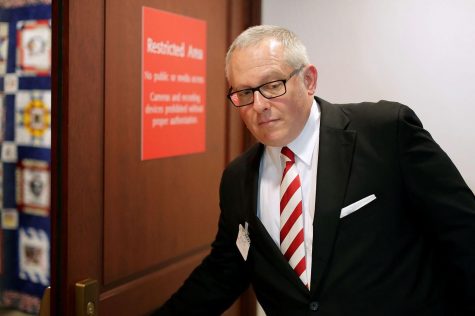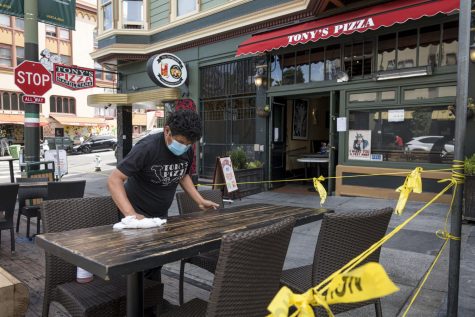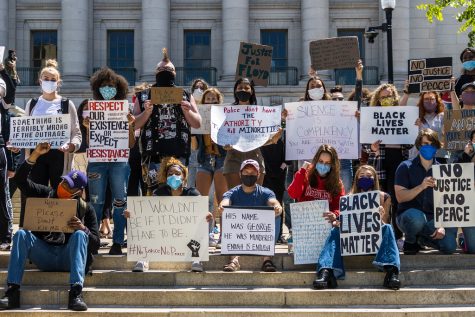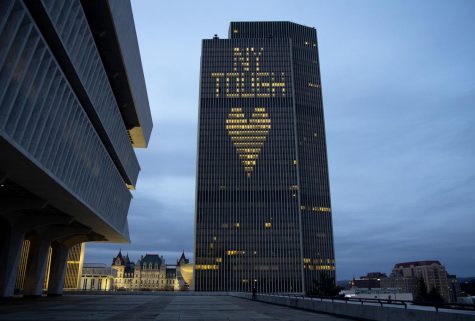Spain Should Set Catalonians Free
Prime Minister Rajoy's authoritarian response to the independence referendum shows us that Francoism is still apparent.
October 11, 2017

By Jack McClatchy
On Oct. 1, over 43.3 percent of registered voters in the Spanish region of Catalonia turned out to vote in an independence referendum that was declared illegal by the central Spanish government. Of the 43.3 percent that voted, 92.01 percent voted for independence.
When the Catalan local government, led by President Carles Puigdemont, defied the central government in Spain and still held the referendum, Prime Minister Mariano Rajoy sent in police in riot gear to seize voting stations. Over 900 were injured in resulting clashes all across Catalonia.
All this violent crackdown did was give ammunition to Catalonian separatists who rightly see the Spanish state as being as oppressive as the dictatorship of Francisco Franco, who ruled from 1939 until his death in 1975. After his death, Spain transitioned to a more liberal democracy.
Unfortunately it seems as though Spain talked a big game about democracy but couldn’t walk the walk. There was absolutely no need for such a violent crackdown on this vote; the last time Catalonia staged an illegal referendum in 2014, the Spanish government, led then by Rajoy, did nothing and ignored the result.
That was also the tactic of choice for the Iraqi government when the Kurds in the north of the country staged a referendum of their own. If you need to take lessons from Iraq on how to be a functioning democracy that respects the rule of law, you’re not doing a great job.
This crackdown in particular is made all the more complicated by the ethnic-based oppression during the Francoist years. Catalonians have a distinctive culture and language different from what we know as Spanish, or Castilian. All of that was suppressed by the Francoist government in favor of the Castilian language and culture. It’s also important to note that Catalonia was a hotbed of anti-Franco resistance during the Spanish Civil War from 1936-1939 which ended with Franco seizing power.
All this history makes the conflict all the more telling for supporters of Catalan independence. Almost immediately, claims that Francoism and fascism never died in Spain were made, which supporters of Spanish unity carrying fascist flags and throwing fascist salutes only reinforced.
On the night after the crackdown, Rajoy said that he had restored the rule of law in Catalonia. What he did instead was set into motion a chain of events that neither Rajoy nor Puigdemont can control.
There is no going back for any side now; the Catalans are prepared to declare independence unilaterally. The Spanish government can then trigger Article 155 of their constitution, which would dissolve the local government in Catalonia and place it directly under Madrid’s control.
This has never been done, as the constitution was written after Franco’s death. If Rajoy triggers this article in the wake of the declaration of independence, it’s anyone’s guess as to what happens.
It also needs to be said that Catalonia isn’t the only region in Spain bristling under Madrid’s rule. The Basque Country, a region in northern Spain inhabited by Celtic Basques, was a hotbed of separatism and was in open conflict with Franco’s government as the paramilitary group ETA employed tactics not unlike the IRA in Northern Ireland.
The ETA only declared themselves to be a disarmed organization in April of this year, and I wouldn’t be surprised if it took up arms again if Rajoy’s government employed more violence on Catalans.
Galicia, a region to the north of Portugal on Spain’s Atlantic coast is also seen as a region desiring independence, but much less so than Catalonia or the Basque Country.
Rajoy, who has been outmaneuvered at every turn of this constitutional crisis, is stuck between a rock and a hard place. Even with tepid support from the European Union, it is hard to feel sympathy for the Spanish cause when you see pictures of riot police firing rubber bullets at point-blank range at Catalan voters.
This is also a matter of political life or death for Rajoy, which only adds more tension to the situation as he sits at the head of a minority government in Spain with the rival Socialist Party biting at his heels. If he fails spectacularly in dealing with this crisis, which I firmly believe he will given his missteps thus far, a vote of no confidence could be in his near future.
There is no set path for what happens next, which is what is really concerning about the crisis in Spain. There are forces at play that neither side can control and have been brewing for decades. All eyes are on Spain, and eventually one side will crack under the pressure.
I just fear what it will take before one side cracks.
Jack McClatchy, FCRH ’21, is a political science major from Wayne, Pennsylvania.











Those crazy Celts! Demanding Freedom and Stuff!
I will refrain from commenting upon the merits or demerits of the Catalonian independence movement, but will state for the record that the engineers and plant managers I have met in this region of Spain are the equal of anywhere in the world. I love my friends, relatives and chemical industry associates in the Gulf Coast of Texas, but if you can site a plant in Barcelona or its environs, well, godspeed! Barcelona is “open for business”!